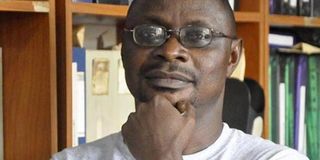Women’s Day: Do Ugandan women owe Mr Museveni?

Asuman Bisiika
What you need to know:
- The biggest problem for Kiburara women is micro-credit entities. Their interest rates are ‘sharkish’, their loan recovery methods ‘shylockish’.
The promotion of women-specific issues as a matter of political projection was one of the novelties of Mr Museveni and his NRM. During his NRM’s armed struggle, community leadership was structured with a specific attention to women affairs.
The Executive Committees of the rebel NRM community leadership had a women’s affairs position whose holder had to be a woman. The projection of communities as units of socio-economic and political development offered a relatively natural platform for women-specific issues.
And when Museveni and his NRM assumed state power, there were deliberate policy interventions that promoted women in almost all spheres of national life. However, these rather good intentions have now been reduced to artificial female mob power framed to serve (and manifest support for) specific interests on both sides of the political divide.
That’s why the womenfolk’s quietude over the failure of a certain 2016 presidential candidate to deliver on a pledge of providing sanitary towels for schoolgoing children was quite disturbing. Yet the issue of sanitary towels seems to be the kind around which all women should have rallied.
If there were women in Parliament, the issue of sanitary towels would have been a solid rallying point for advocacy. But then…! It’s sad that even elite women can no longer find common ground on women-specific issues like sanitary towels!
*************
A highly educated lady accused a highly placed lady of failure to articulate and advocate (for) the provision of sanitary towels for schoolgoing girls. The highly educated lady (activist) became the object of police investigations. Don’t laugh; I have these things on record. And we asked: Do Ugandan women still owe Museveni (just) for starting the women’s struggle? Or does Museveni owe the Ugandan women for his ideological regression on women issues? Nze nawe (it is moot).
In June 2010, Ugandan women met under the banner of Women in Politics Conference and developed a paper they called Uganda Women’s Agenda 2011-2016. The contents of the paper were intended to influence manifesto writers of the various political parties before the 2011 elections. The conference brought together a cross section of members of civil society, the academia, women leaders and politicians from major political parties.
The conference adopted 11 areas that should be addressed by the national political leadership. Here: Democracy and political governance, economic empowerment, human rights and the law, health, education, environment, information communication and technology, women with special needs, peace, human security and dignity, institutional mechanisms for the achievement of gender equality in Uganda; regional and international contexts, speaking truth to power.
These areas were adopted from a report by Forum for Women in Development (FOWDE). The FOWODE report was itself the result of a research from 22 districts of Uganda. A general observer in these matters would find the Uganda Women’s Agenda 2011-2016 as relevant today as it was in 2010. Even then it reads like an executive brief of a serious political party (actually a serious government could adopt it as its development master plan).
*************
So, what are the women specific issues as of March 8, 2023? The biggest problem for Kiburara women is micro-credit entities. Their interest rates are ‘sharkish’, their loan recovery methods ‘shylockish’. Families have had to sell their only pieces of land (rendering them part of Uganda’s floating population) to settle credit facilities from loan sharks masquerading as credit facilitators. There are cases of suicide too. In 1986, the promotion of women issues was an ideological position aimed at socio-economic emancipation. And now? May be Mr Museveni owes Ugandan women an explanation.
*Asuman Bisiika is the executive editor of the East African Flagpost.




